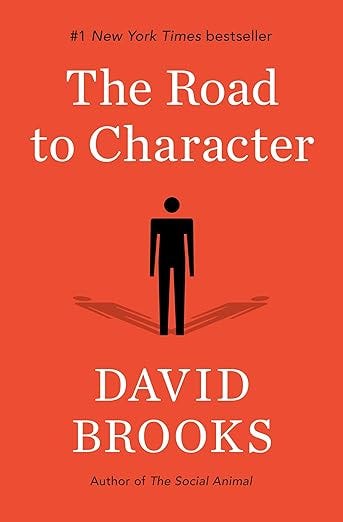With the wisdom, humor, curiosity, and sharp insights that have brought millions of readers to his New York Times column and his previous bestsellers, David Brooks has consistently illuminated our daily lives in surprising and original ways. In The Social Animal, he explored the neuroscience of human connection and how we can flourish together. Now, in The Road to Character, he focuses on the deeper values that should inform our lives.
Looking to some of the world’s greatest thinkers and inspiring leaders, Brooks explores how, through internal struggle and a sense of their own limitations, they have built a strong inner character. Labor activist Frances Perkins understood the need to suppress parts of herself so that she could be an instrument in a larger cause. Dwight Eisenhower organized his life not around impulsive self-expression but considered self-restraint. Dorothy Day, a devout Catholic convert and champion of the poor, learned as a young woman the vocabulary of simplicity and surrender. Civil rights pioneers A. Philip Randolph and Bayard Rustin learned reticence and the logic of self-discipline, the need to distrust oneself even while waging a noble crusade.
Blending psychology, politics, spirituality, and confessional, The Road to Character provides an opportunity for us to rethink our priorities, and strive to build rich inner lives marked by humility and moral depth.
Here are seven key lessons from The Road to Character by David Brooks:
The Importance of Humility: Humility is essential for building character. Brooks emphasizes the need to recognize our limitations and embrace the idea that we are always a work in progress, learning from our mistakes and experiences.
The Difference Between Résumé Virtues and Eulogy Virtues: Résumé virtues are the skills and achievements that make us successful in our careers, while eulogy virtues are the deeper qualities—like kindness, integrity, and humility—that define who we are as people. Brooks argues that the focus should shift from résumé virtues to eulogy virtues for a more meaningful life.
The Role of Struggle in Character Development: Struggles and hardships shape our character. Brooks points out that the development of deep moral character often requires enduring challenges and learning from them, as they build resilience and integrity.
The Power of Inner Conflict: True character is formed when we wrestle with our inner weaknesses, competing desires, and moral dilemmas. This internal struggle is what ultimately defines our values and ethical choices.
The Need for Selflessness and Service to Others: Selflessness is a cornerstone of building strong character. Serving others and focusing on the well-being of those around us fosters a sense of purpose and fulfillment, pushing us toward moral excellence.
The Value of Moral Narratives: Brooks argues that we should think of our lives as moral narratives. Developing a sense of who we want to become and the virtues we wish to embody gives us clarity and direction as we navigate life’s complexities.
Character Is Built Over Time: Character isn’t something we’re born with—it’s something we cultivate through consistent effort, self-reflection, and a commitment to personal growth. It takes time to build a strong, enduring character, and this process is lifelong.











